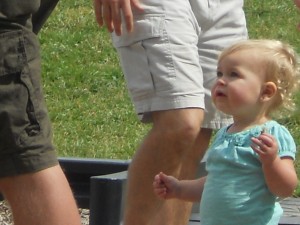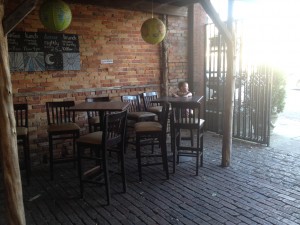SCOTT JAMES DODD, M. Ed.
3945 Halifax Road – Wilmington, NC 28403
doddsj2002@gmail.com (910) 620-4016 https://sdodd.edublogs.org
• GOAL: Experienced professional educator with a diverse background
working with a wide variety of learners, curricula, and technology
seeking a senior administration role
CORE ADMINISTRATIVE COMPETENCIES:
Shared Mission/Vision Leadership Supervision of Curriculum/ Instructional
Budget Management/Supervision Teacher Evaluation/ Mediation
Stakeholder Communication Professional Development leading
DSS Child Custody Mediation Learner-Centered Instruction
School Safety Procedures Program Management
Differentiated Instruction Accountabilities (MTSS, IEP, AIG)
Differentiated Instruction Strategies (Acceleration, Tiered)
Data-based Decisions using data points including:
mClass, iReady, EVAAS, PowerSch, state testing, Teacher Working Conditions Survey
CORE TEACHING COMPETENCIES:
Instructional System Design Technology in the Classroom with respect for SAMR
Gifted Education/ ESOL Education Assessment (Formative & Summative)
Differentiated Instruction Common Core State Standards (CCSS) Accountability
Problem Based Learning Planning using Hess’s Rigor Matrix
Classroom Management Field Trip Planning/ Bus Driving
General Thinking Skills Athletic Coaching (Wrestling, Track & Field)
Current North Carolina Educator’s Professional License Areas
School Administration Class Code P
Curriculum Instructional Specialist Class Code M
Gifted Education Class Code A
Elementary Education (K-6) Class Code A
EDUCATION
Additional Graduate Coursework: School Administration, AIG, and ESOL at UNCW 2013-2016
Master of Education, Curriculum/ Instructional Supervision 2007
University of North Carolina Wilmington- Overall GPA- 3.73/4.0
Thesis: “The Seventh Perspective: Coaching Fifth Graders toward Independence in Preparation for Mid. Sch.”
Bachelor of Science, Elementary Education, Taylor University, Upland, IN 1989
Certificate, TechLeader Digital Media Workshop, NC School of Science and Mathematics 2003
Certificate, Principals’ Executive Program for Charter Schools, UNC at Chapel Hill, Friday Center 2002
ADMINISTRATIVE EXPERIENCE:
Gifted Education Specialist Carolina Beach Elementary, North Carolina 2015-Present
• Lead the assessment and evaluation of individual giftedness according to identification specifications
• Adapt the NC Standard Course of Study (SCOS) to address a range of advanced abilities
• Deliver professional development to instructional staff centered on differentiation and responsiveness
• Coach/collaborate with teachers on behalf of gifted students
• Advocate for a positive overall academic/intellectual culture school culture
• Deliver comprehensive AIG programs and services to meet academic, intellectual, social, and emotion
needs of gifted learners in all classrooms, grade levels, and settings
Academic Dean, Johns Hopkins University, Center for Talented Youth (CTY) 2005-2015
• Supervised and supported advanced academic program, ensuring student growth and professional development
• Coordinated the academic program of 250 students, nineteen classes, and forty faculty members
• Reviewed and facilitated pre and posttest instruments for all courses
• Oversaw faculty
• Served as a senior member of the site administration team
• Coached and encourage expert and new, content-strong instructors in a highly academic setting
• Edited and approved individual student narrative evaluations
• Wrote instructor evaluations, and provided constructive feedback
• Determined relevant topics, then created and presented professional development workshops
• Initiated contact and respond to parent questions and concerns
• Negotiate academic space requirements with host institution
• Coordinated field trip logistics including scheduling, food, and transportation
• Managed academic budget and collaborated with senior site administration regarding site budget
• Spoke publicly on behalf of the program
School Improvement Team Chair, Carolina Beach Elementary, NC 2008-2010
• Developed School Improvement Plan by collaboration and clarification, consolidated information
in one accessible location
• Facilitated dialog with faculty to solicit changes in instruction based on data
Vestry Member/ Junior Warden; St. John’s Episcopal Church, Wilmington, NC 2005-2008
• Negotiated the vestry’s administrative voice to express the mission of the church
• Advocated for the pre-school as an outreach asset to the church
• Organized community events and managed facility security analysis for procedural and structural improvements
Assistant Chair & Founding Board Member, St. John’s Episcopal Pre-School, North Carolina 2005
• Developed school’s initial by-laws collaboratively with other board member team
• Advocated preschool accreditation with the National Association of the Education of Young People (NAEYP)
Charter School Coordinator, Cape Fear Center for Inquiry, Wilmington, North Carolina 2001-2002
• Oversaw daily function of school operations and reported state-of-the-school to the board of directors
• Coordinated the work of the board, faculty, and parents on behalf of student learning
• Initiated and documented individual coaching cycles with teachers to improve instruction
• Coordinated faculty meetings and school’s procedural decision-making process
• Supported faculty with classroom management and student discipline learning
• Administered school-wide NC End-of-Grade (EOG) testing
• Created approved school procedural handbook policies for daily operations and emergencies
Search Committee Member, St. John’s Episcopal Church, Wilmington, North Carolina 1999-2000
• Collaborated with other committee members in an 18-month process to present three names to vestry
• Wrote, distributed, tallied, and presented the St. John’s Episcopal Church Survey (295 returned out of 650 -45%)
• Reviewed and recommended candidate resumes and profiles, and made observational visits to semi-finalists
Conference Co-Coordinator, Shrine Mont Conference, Orkney Springs, Virginia 1994-1995
• Administered week-long, 350 adult retreat from the mailing of applications to the analysis of final evaluations
using MS Access to organize payment, lodging, and workshop selection while ensuring special needs
TEACHING EXPERIENCE:
Curriculum Support Instructor, Carolina Beach Elementary, North Carolina 2012
• Review student formative quantitative and qualitative data to recommend modification of instruction
• Document strategies to apply the rigor and relevance required of the Common Core State Standards (CCSS)
while coordinating dialogue with and between instructional staff members
• Peer evaluator and teacher mentor within school community
Elementary School Teacher, New Hanover County Schools, North Carolina 2003-2015
• Provided instruction based on the North Carolina Standard Course of Study (NC-SCOS)
• Created community of classroom learners centered on the Common Core and NC Essential Standards
• Articulated information, media, and technology skills as a subset of the full framework for 21st Century Learning
• Promoted specific meta-cognitive and general thinking skills in the context of life-long-learning
• Created inviting learning environment for diverse sets of learners
• Maintained documentation of Response to Intervention strategies and communication with parents
• Coordinated academic field trips and drive bus to reduce costs
• Conducted formal research- designed, gathered, analyzed data, reported, modified instruction
• Advocated successfully for $10,000 STEM grant for local research-grade weather/ energy analysis
• Proposed and received grant funding for interactive white boards
Special Education Teacher, Pender County Schools, North Carolina 2002-2003
• Maintained Individual Education Plan (I.E.P.) case load
• Created and delivered life skill instruction in Occupational Preparation (Occu Prep) student population
• Coached track athletes in field and hurdle events and drove bus for away meets
Instructor of Talented Youth, Johns Hopkins University, CTY, Maryland 2000-2001, 2004
• Developed/delivered intense, engaging instruction in geometry, logic, and data & chance for highly gifted students
• Wrote individual, detailed narrative evaluation letters regarding each student’s academic experience
Test Item Writer, CTP-4, Educational Testing Service (ETS) 2000
• Created test questions, answers and distracters for nationally-normed math reasoning and achievement test
• Collaborated with other item writers in the development of some test items
Middle School Teacher, Cape Fear Academy, Wilmington, North Carolina 1995-2001
• Designed and delivered instruction for math and science courses emphasizing practical, hands-on applications
• Created eleven by six foot ponds in the science classroom for two-week ecosystem studies
• Coached Math Olympiad and Science Olympiad competitions
• Applied for and received two-thousand dollar grant to establish ongoing entomology units
• Applied for and received grant funds to teach geometry utilizing a software (Geometer’s Sketchpad)
• Operated bus for frequent and relevant field trips
• Negotiated faculty conflict resolution by chairing the Faculty Assistance Team
Lay Eucharistic Minister, Cape Fear Region Episcopal Churches 1996-Present
• St. John’s, Wilmington, St Andrew’s on the Sound, Wilmington, and All Souls, Northwest
Middle School Teacher, Virginia Beach City Public Schools, Virginia 1993-1995
• Delivered math and science instruction using the VA SCOS in an inclusive classroom setting
Parenting Class Facilitator, Systematic Training of Effective Parenting (S.T.E.P) 1994
• Lead parenting workshop including instruction of content and problem solving strategies
• Negotiated effective solutions to ongoing parenting issues within the groups
Advanced Elementary Teacher, St. John’s School (IB), Tumon, Guam 1990-1993
• Prepared advanced 4th, 5th, and 6th graders for International Baccalaureate high school math program
• Coordinated collective opinion as President of the Faculty/Staff Council
Houseparent/ Coach, Rabun Gap-Nacoochee School, Rabun Gap, Georgia 1985-1990
• Mentored twenty-four high school boarding students at the school where the Foxfire program began
• Established and coached wrestling program that has continued to flourish
• Assessed and scheduled campus grounds maintenance needs, and facilitated student-work program
COMPUTER PROFICINCIES
• Visionary Leadership
• MS Office (Word, Excel, PowerPoint, Access, and Front Page)
• Education Software (Powerschool, mClass, Kahoot, Lego¬¬® Mindstorms,Google Classroom, BYOD)
• Social Networking (EduBlog, LinkedIn, Twitter, Instagram, Google+, Facebook, Skype[scott-dodd])
• Presentation Software (MS PowerPoint, Animoto, Voice Thread, YouTube, Prezi, Poll Everywhere,
Survey Monkey, Lego® Mindstorms, WeVideo)
ASSESSMENTS/ASSOCIATIONS/ HONORS:
• National Association for Gifted Children (NAGC) 2015-Present
• Association for Supervision and Curriculum Development (ASCD) 2000-Present
• Best Supporting Teacher, Carolina Beach Elementary, NHCS, North Carolina 2016
• School Leaders Licensure Assessment: SLLA (1010) 2009
• Praxis II Educational Leadership Administration & Supervision (0410) 2004
• Distinguished Service Award- Ten Years, Johns Hopkins University Center for Talented Youth 2013
• Gates-Howard Award recipient for Outstanding Athlete of the Year, Taylor University 1981
• Gaebelein Award recipient for best influence within the school, The Stony Brook School 1977
• Guam Olympic Wrestling Coach, Guam Amateur Wrestling Federation 1992
• Full Spouse member of the Carolina Yacht Club, Wrightsville Beach, North Carolina 1998-Present
• Class B North Carolina DMV Commercial Driver License with M-P-S endorsements 1996-Present
• Placed seventh in NAIA National Wrestling Championship, Edmond, OK 1981
• Raised as a faculty child on the boarding school campus of The Stony Brook School, L.I., New York
• Travel: Australia, Canada, Germany, Guam, Jamaica, Mexico, Saipan, Samoa, Okinawa, and 34 states of the USA



